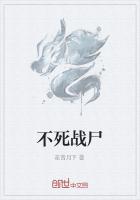Mortified by this unexpected decision, the violent passions of the defeated party hurried them on to seek the blood of those peers lodged in the Tower. Of the five, William Howard, Viscount Stafford--youngest son of the Earl of Arran, and nephew of the Duke of Norfolk--was selected to be first put upon his trial;inasmuch as, being over sixty years, and a sufferer from many infirmities, it was judged he would be the least capable of ****** a vigorous defence. Three perjured witnesses swore he had plotted against the king's life, but no proof was forthcoming to support their evidence. Notwithstanding this was "bespattered and falsified in almost every point," it was received as authentic by the judges, who made a national cause of his prosecution, and considered no punishment too severe for a papist. After a trial of five days sentence of death was pronounced upon him, and on the 29th of December, 1680, he was beheaded on Tower Hill.
Like those who had suffered from similar charges, he protested his innocence to the last; but his words met with a reception different from theirs. Their dying speeches had been greeted by groans, hisses, and signs of insatiable fury; but his declarations fell upon silent and sympathizing hearts. When he had made denial of the crimes of which he was accused, a great cry rose from the mob, "We believe you--we believe you, my lord;"and then a single voice calling out "God bless you!" the words were taken up and repeated by a vast throng, so that the last sounds he heard on earth were those of prayer. He died with a firmness worthy of his caste. Having laid his head upon the block, the executioner brandished his axe in the air, and then set it quietly down at his feet. Raising his head, Lord Stafford inquired the cause of delay; the executioner replied he awaited a sign. "Take your time," said he who stood at the verge of eternity; "I shall make no sign." He who held the axe in his hand hesitated a second, and then said in a low and troubled voice, "Do you forgive me, sir?" To which Lord Stafford made brief answer, "I do." Then he laid his head again upon the blood-stained block. Once more the glitter of steel flashed through the air, a groan arose from the crowd, and Lord Stafford's head was severed from his body.
A reaction now set in, and gained strength daily. The remaining peers were in due time liberated; the blood of innocent victims was no longer shed; and the Duke of York was recalled. Such was the end of the popish plot, which, says Archdeacon Eachard, "after the strictest and coolest examinations, and after a full length of time, the government could find very little foundation to support so vast a fabrick, besides downright swearing and assurance; not a gun, sword, nor dagger, not a flask of powder or dark lanthorn, to effect this strange villainy, and with the exception of Coleman's writings, not one slip of an original letter of commission among those great numbers alledged to uphold the reputation of the discoveries."Concerning those through whose malice such disturbance was wrought, and so much blood shed, a few words may be added.
Within twelve months of Lord Stafford's execution, Shaftesbury was charged with high treason, but escaping condemnation, fled from further molestation to Holland, where, after a residence of six weeks, he died. Tonge departed this life in 1680, unbenefited by the monstrous plot he had so skilfully devised;and in the same year Bedlow was carried to the grave after an illness of four days. Oates survived to meet a share of the ignominy and punishment due to his crimes. After a residence of three years in Whitehall, he was driven out of the palace on account of "certain misdemeanors laid to his charge," and deprived of his salary. Two years later, in May, 1683, he was accused of calling the Duke of York a traitor, and using scandalous words towards his royal highness. Upon hearing of the case the jury fined him one hundred thousand pounds. Unable to pay the sum, he was cast into prison, where he remained six years, until liberated in the reign of William and Mary, His punishment was not, however, at an end. At the Michaelmas term of 1684 he was accused of having wilfully perjured himself at the late trials. As he pleaded not guilty, his case was appointed to be heard at the King's Bench Court. His trial did not take place until May, 1685, on which occasion the lord chief justice, in summing up the evidence, declared, "There does not remain the slightest doubt that Oates is the blackest and most perjured villain on the face of the earth."After a quarter of an hour's absence from court, the jury returned a verdict of guilty, and sentence was pronounced against him. He was stripped of his canonical habit; forced to walk through all the courts of Westminster Hall proclaiming his crimes; to stand an hour on the pillory opposite Westminster Hall gate on Monday; an hour on the pillory at the Royal Exchange on Tuesday; and on Wednesday he was tied to a cart and whipt at the hands of the common hangman from Aldgate to Newgate, in the presence, says Eachard, "of innumerable spectators, who had a more than ordinary curiosity to see the sight.".















